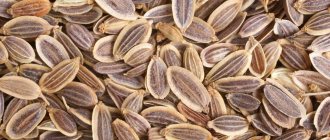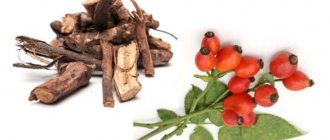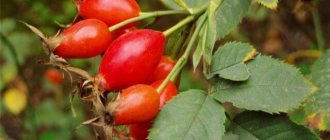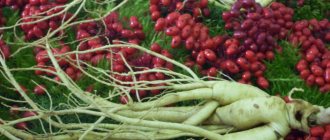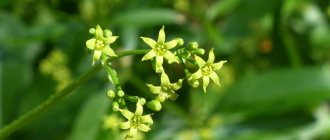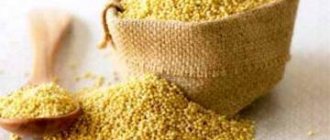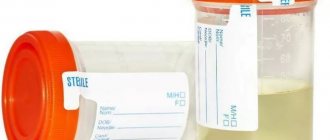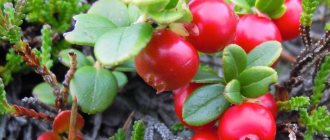Our ancestors faced the same health problems and diseases as modern humans.
But how were they treated when there were no laboratories?
For all occasions, knowledge gained through experience was passed on from generation to generation about how and with what to treat this or that ailment. This knowledge is called folk or traditional medicine.
Many drugs invented by modern man are based on knowledge of traditional medicine. Blueberry extracts are added to medications to improve vision, valerian extracts are added to sedatives, etc.
The development of medicine does not at all mean that traditional medicine is outdated; on the contrary, there are many traditional remedies, the effect of which cannot be compared with modern drugs. One of the products widely used in folk medicine is pumpkin.
Useful properties of pumpkin
Pumpkin is a healer for many diseases and ailments. It will improve the performance of the heart, gallbladder, liver, and help with anemia, edema, hypertension, burns and skin inflammation. The vegetable is recommended by many nutritionists, as it is very healthy and low in calories.
Pumpkin has a huge number of beneficial properties. The vegetable is very healthy and nutritious.
Among the huge variety of properties of pumpkin are:
- Rich in iron, vitamins C, T, E, B, magnesium, calcium, cobalt, zinc, copper, pectin, starch, fiber, sugar.
- Slowing down the aging process.
- Strengthening blood vessels.
- Used as a laxative (for constipation).
- Improved peristalsis.
- Soft consistency, which is an excellent food for older people.
- Possessing a choleretic effect.
- Antiemetic for toxicosis and poisoning.
- Possessing a diuretic effect.
- Cleansing of toxins, excess cholesterol and plaques on the walls of blood vessels.
- Excellent absorption.
- High levels of beta-carotene, which promotes eye health. One glass of pumpkin juice contains double the daily value of vitamin A.
- Reduces the risk of developing cancer.
- Helps the body produce insulin.
Using the pulp
In the absence of pathologies of the gastrointestinal tract, pumpkin pulp can be consumed raw without restrictions or drink juice to saturate the body with vitamins, macro and microelements, cleanse the blood, bind and remove toxins.
The benefits of pumpkin for the body are obvious in various pathologies of the heart and blood vessels:
- myocardial dystrophy;
- arrhythmias;
- ischemic disease;
- sclerotic deposits in the lumen of blood vessels;
- circulatory disorders, high blood pressure.
For dyskinesia of the gallbladder and ducts, functional disorders of the liver, chronic pancreatitis, cholecystitis, increased lithogenicity of bile, pumpkin salads and fresh juice prevent the development of inflammatory processes, have an antitoxic effect, and improve well-being.
Pumpkin helps remove sand and small stones from the kidneys, prevents inflammatory diseases of the urinary tract, and relieves swelling.
For chronic gastritis with high acidity, gastroduodenitis, pumpkin juice helps eliminate heartburn and improves digestion. The pulp stimulates intestinal motility, binds toxins, heals microcracks, prevents inflammation of the mucous membrane, the development of constipation, and hemorrhoids.
Vitamin K in pumpkin has a preventive effect against a tendency to anemia, low hemoglobin content and poor blood clotting.
The rich mineral composition of the vegetable, when regularly included in the diet, ensures normal functioning of the central nervous system, reduces the manifestations of nervous disorders, restlessness, anxiety, and helps improve sleep.
The high content of carotenoids, ascorbic acid, B vitamins, and zinc helps to avoid decreased vision, inflammatory and degenerative eye diseases, and strengthens the immune system.
Pumpkin is useful for all types of protein, fat and carbohydrate metabolism disorders, decreased thyroid function, high blood sugar, and early stages of diabetes. People who love to eat it rarely suffer from inflammatory joint diseases, osteochondrosis, brittle bones or teeth.
A high content of vitamins and nutrients with low calorie content is a godsend for overweight people.
The active substances of pumpkin smooth out the manifestations of premenstrual syndrome, hormonal disorders, menopause in women, and have a therapeutic effect in inflammatory diseases of the appendages.
Medicinal properties
Pumpkin has a huge variety of different medicinal properties.
The main ones are:
- Diuretics.
- Use for painful urination and dysfunction of the urinary system.
- Treatment of childhood enuresis.
- Use for cardiac and renal edema.
- Treatment of liver diseases.
- Improving water-salt metabolism.
- Improving sleep, relieving stress and fatigue.
- Elimination of inflammation.
- Strengthening regeneration processes.
But in addition to using pumpkin in medicine, its pulp is in great demand in cosmetology. We can safely say that pumpkin is a storehouse of useful, medicinal properties.
Harm of pumpkin to the body
The heat-treated product has few contraindications. It is included in most therapeutic diets. You should not eat this vegetable only in case of acute diarrhea, intestinal obstruction, exacerbation of peptic ulcer or gastritis, or increased tendency to blood clots.
Raw vegetable pulp is contraindicated if you are prone to gas formation and other pathologies of the digestive tract. Signs of such disorders: heaviness, bloating, abdominal pain, upset stool.
In case of cholelithiasis, raw pumpkin and its juice can cause blockage of the ducts with large stones and provoke an acute attack, so consuming them is prohibited.
Indications and contraindications
Every person needs to eat pumpkin for prevention. But for a certain group of people it is simply necessary to use it.
Pumpkin is prescribed to people with the following diseases:
- Diabetes.
- Impaired urination.
- Burns.
- Cardiac edema.
- Stones in the kidneys.
- Liver disease.
- Obesity.
- Bloating.
- Worms.
Pediatricians also actively prescribe pumpkin porridge to children, as it is an excellent preventive measure for eliminating harmful substances from the body.
Contraindications:
Pumpkin is one of the few vegetables that is practically not contraindicated for anyone. It can be eaten by both healthy people - for prevention, and sick people - for treatment. It is recommended that only those people who suffer from severe diabetes mellitus avoid this miracle vegetable.
Benefits of pumpkin seeds
The medicinal properties of pumpkin seeds are no less wide than those of its pulp. They contain the element cucurbitin, a strong natural anthelmintic that poisons parasites. Thanks to this, the seeds are used for the prevention and treatment of giardiasis, enterobiasis and ascariasis. Traditional medicine recommends using dried seeds ground into flour, taking 2 tbsp daily on an empty stomach. l. To expel worms in children, the powder can be prepared as a mixture with natural or pumpkin honey.
Pumpkin seed products are useful for men, as they help maintain and restore potency and stop the progression of prostatitis. Regular intake of zinc and magnesium into the body stimulates the production of testosterone, improves spermatogenesis, and prevents inflammation of the prostate gland. And in combination with vegetable pulp, they reduce the permeability of blood vessels in the capillary network and eliminate the manifestations of erectile dysfunction.
For medicinal purposes, you need to take only raw, naturally dried seeds with a thin greenish shell - it is this that contains the necessary healing substances. Roasted seeds lose most of their beneficial qualities.
Application
For inflammation and kidney disease:
- Grind 1 tablespoon of seeds in a blender or coffee grinder.
- Pour the mixture with boiled water (1 cup, approximately 200 ml).
- Wait until the contents of the glass are at a suitable temperature for consumption.
- Drink 200 ml 30 minutes before meals.
Pumpkin honey for kidney and liver diseases:
- Cut a “window” on the vegetable.
- Get the “core” (seeds and fibers).
- Pour granulated sugar or bee honey into the free cavity to the edges.
- Cover the pumpkin tightly with the cut out top. Place the pumpkin in a large glass dish in case the contents under pressure break the integrity of the skin and spill out.
- Place the pumpkin in a place where the temperature is below room temperature for 1 month.
- The contents, which have a consistency similar to honey, must be placed in a glass container with a lid. Meanwhile, place the dishes in the refrigerator.
- Take 1 tablespoon of “pumpkin honey” half an hour before meals. After finishing the contents of the jar, you need to take a break of 10 days, after which the procedure can be repeated with the second pumpkin.
For the prevention of kidney diseases and urolithiasis:
- Remove the skin from the pumpkin. Cut it into thin strips and dry them in the oven.
- Pour 1 tablespoon half a liter of water. Boil over low heat until half the liquid has evaporated.
- Infuse the decoction for 12 hours (preferably overnight). Then pass the broth through cheesecloth.
- Divide the resulting mixture into 3 equal parts and consume half an hour before meals 3 times a day. Repeat the procedure daily, drink the resulting drink in 1 day.
- It is necessary to take the decoction intermittently: drink for 10 days and rest for 7 days. And drink the decoction 3 times for 10 days, so that as a result, you drink it for 30 days.
1.Kidney transplantation, how is the operation performed?
Kidney transplant
is an operation to replace a patient’s diseased kidneys with healthy (donor) ones.
There are two types of donors:
- Alive
. A living donor can be a family member, friend, co-worker, or anyone else who wishes to donate their kidney to the patient. A person only needs one healthy kidney to live. - Dead
. A deceased donor is a person who has recently died. Most donated kidneys are from deceased donors.
In both cases, the main thing for the success of the operation is the blood groups of the donor and recipient being as close as possible, as well as tissue matching. Thus, a family member is not always the best donor for the recipient.
It is necessary to undergo examinations and tests to ensure that blood groups and tissue types match. This helps reduce the chance that your body will reject the new kidney. Each patient is also screened for serious lung, heart and other diseases such as cancer. they can reduce life expectancy.
A kidney transplant operation takes approximately 3 hours. During surgery, the donor kidney is placed in the lower abdomen, the donor kidney's blood vessels are connected to the recipient's veins and arteries, and the donor ureter is attached to the patient's bladder. Blood can then flow through the new kidney again, which in turn begins to filter, remove waste, and produce urine.
The new kidney begins to function immediately after transplantation. In most cases, a diseased or damaged kidney is removed only when there is a serious infection (pyelonephritis), kidney cancer, nephrotic syndrome, or an abnormally large polycystic kidney.
A must read! Help with treatment and hospitalization!
4. Risks during transplantation and what should you think about?
Complications after a kidney transplant include:
- Rejection of a donor kidney;
- Infection;
- Bleeding;
- Reaction to anesthesia;
- Kidney failure of the donor.
What should you think about?
A kidney transplant is a better treatment than dialysis because... Life expectancy for patients is becoming longer. You will again be able to live your normal life without resorting to dialysis. Although organ transplantation is an expensive procedure, it becomes cheaper in the long term than multiple dialysis treatments.
The queue for donor kidneys is usually very long. In addition, there is no guarantee that the operation will be successful. Fewer complications occur in people who do not have other health problems, such as coronary heart disease or cancer. Such diseases greatly reduce life expectancy.
It is also worth noting that taking immunosuppressants after surgery increases the risk of infectious diseases. And even taking these drugs for several years cannot guarantee that your body will stop rejecting the new kidney. In addition to infectious diseases, immunosuppressants may increase the risk of diseases such as skin cancer, lymphoma, diabetes, high blood pressure and some others. However, even taking all the risks into account, it can be argued that transplantation is the best option for getting rid of serious kidney diseases.
